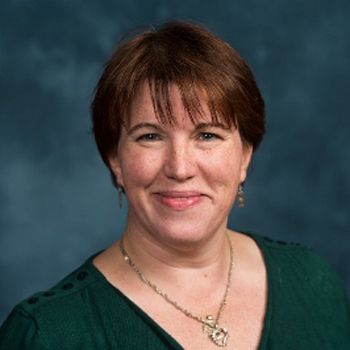Q&A with CHRT Health Policy Fellowship alumna Michelle Meade

Michelle Meade is a professor at the University of Michigan’s Department of Physical Medicine, Rehabilitation, and Family Medicine. A rehabilitation psychologist by training, she also serves as the director of the University of Michigan Center for Disability Health and Wellness. We recently sat down with her to discuss her time as a CHRT Health Policy Fellow and how it has shaped her career and perspective on policymaking.
What led you to join the Health Policy Fellowship?
“I first became interested in the fellowship after hearing one of CHRT’s staff speak. The first time I applied for the fellowship I was not accepted, but the interaction led to valuable conversations and collaborations, which eventually culminated in a five-year, $900,000 grant that the CHRT team and I used to explore policy issues, particularly the impact of the Affordable Care Act on healthcare access for people with physical disabilities.”
How has the fellowship impacted your career?
“I joined the fellowship in the 2020 class. My class was the first to be impacted by COVID-19, and I had the opportunity to witness a CHRT colleague become a key advisor to the Michigan governor’s office on COVID-19 policy. Although some of our trips to Lansing, Detroit, and Washington, D.C., were delayed due to the pandemic, the fellowship significantly broadened my understanding of policy and how it intersects with research.
One of the key takeaways was learning how to translate academic research into policy briefs or clear, concise summaries that policymakers can use. Before I joined the fellowship, I remember being asked to submit a Congressional briefing, and initially, I prepared a 50-page document. I received the feedback “Can you make this two pages?” and I was shocked. It wasn’t until the fellowship that I truly grasped how different the policy world is from academia. They want straightforward, clear statements, not the in-depth academic back-and-forth we’re used to.
This understanding of policy translation has become integral to my work. We now incorporate policy briefs into our research projects and think critically about how to present information in a way that can be picked up by advocacy groups, healthcare organizations, or government entities. The fellowship also helped me understand the importance of networking—knowing who the key players are and how to interact with them is essential for driving change.”
Why do you think it’s important for academics to understand policymaking?
“Academics have the opportunity—and, I believe, the responsibility—to make an impact beyond publishing papers. Our research participants are not just subjects. They are part of something larger. They’re contributing their time and experiences to research that should ultimately make a difference in people’s lives. To make that happen, it’s crucial to understand the policy landscape. Whether it’s clinical interventions or programmatic research, you need funding and support to implement the changes you identify.
The fellowship taught me that our research can only be impactful if it reaches the right people in the right way. Academics need to understand how to translate complex research findings into practical, actionable information for policymakers. It’s not just about gathering evidence—it’s about making sure that evidence is communicated in a way that influences decision-making at local, state, and national levels.”
What are you working on now in your career?
“My work continues to focus on the intersection of disability, healthcare disparities, and social determinants of health. Clinically, I specialize in rehabilitation psychology, working with individuals with spinal cord injuries. My research, however, has expanded beyond spinal cord injury to explore how personal factors, impairment-related factors, and environmental factors interact to influence health outcomes.
One of the most pressing issues I’m exploring is the disproportionate burden that ableism and racism place on individuals with disabilities, particularly in healthcare. The fellowship itself was one of the experiences that deeply influenced how I think about health equity and policy.”
For more information and to apply: